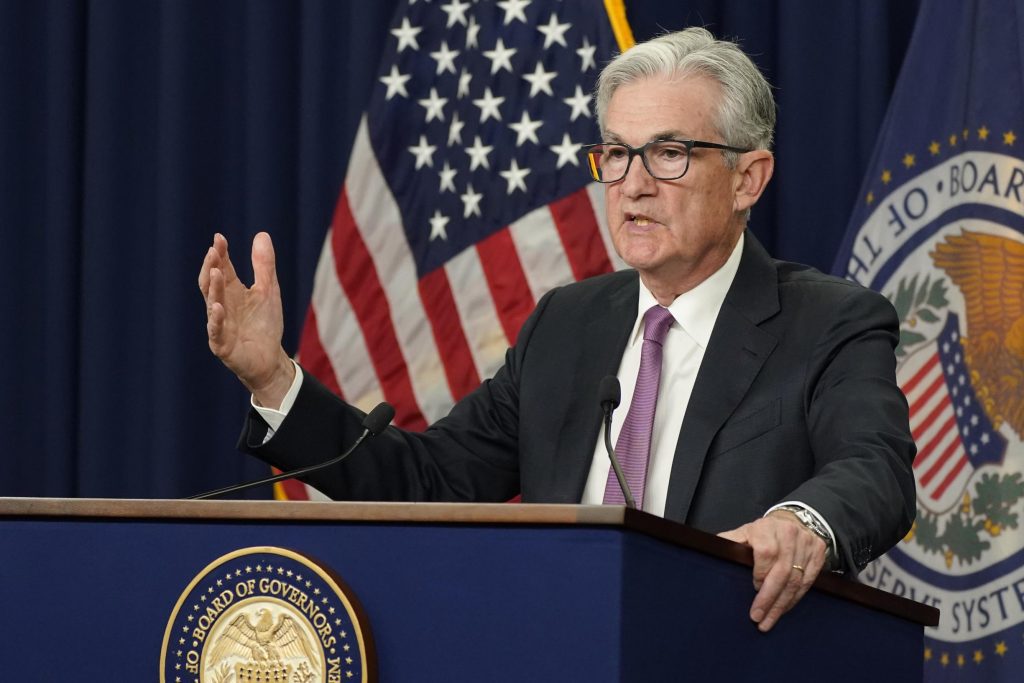The Federal Reserve raised interest rates by 75 basis points as expected. This is the largest rate hike since the early 1980s.
The US central bank, the Federal Reserve, wants to do everything it can to fight inflation. As expected, he hiked key interest rates by 75 basis points to 3-3.25%. Some analysts had expected an even higher, 100 basis point or one percentage point increase.
The central bank indicated in a press release that further rate hikes will be needed in the coming months. “The committee remains committed to bringing inflation back to the 2% target.” The Federal Reserve also released its economic forecasts. He expects growth to stall at 0.2 percent growth this year. Growth will pick up slightly to 1.2 percent in 2023. Inflation is expected to ease to 5.8 percent this year and 2.8 percent next year. The unemployment rate rose to 4.4 percent.
Rising core inflation
The reason for the sharp increase is not far-fetched: persistently high inflation. In August, inflation in the US was still 8.3 percent. The central bank’s main concern is rising core inflation. This means that inflation is not caused by rising energy or food prices. It was 6.3 percent in August. In contrast to Europe, the inflationary surge is caused by an overheated economy combined with a very tight labor market. The US has not been affected by the war in Ukraine and rising gas prices. On the other hand, there is a very tight labor market. The unemployment rate remains at 3.7 percent, making it easier for workers to demand and receive higher wages, fueling inflation. The central bank believes that a cooling economy will reduce workers’ wage demands.
Within the US interest rate group, it has been clear for some time that the hawks will beat the doves (those who want to keep interest rates low). All major governors want to prevent America from entering a wage-price spiral. At an informal Fed summit in Jackson Hole last month, Fed Chairman Jerome Powell said he was serious about tackling the inflation problem. He is willing to pay the price of a small recession. Powell wants to follow in the footsteps of Federal Reserve Chairman Paul Volcker, who used austerity measures in the early 1980s to fight persistent inflation in the late 1970s and early 1980s.
• Powell wants to freeze the US economy
So economists believe that the Federal Reserve will not stop there. They expect the central bank to raise interest rates to around 4.5 percent in the coming months and leave them at that level for some time.

“Passionate analyst. Thinker. Devoted twitter evangelist. Wannabe music specialist.”







More Stories
Cooperation between the US and China ensures more stable corporate finance – FM.nl
New US peace proposal for Gaza war ‘may be too smart for either side to say no’
Bitcoin weathers bankruptcy storm in US